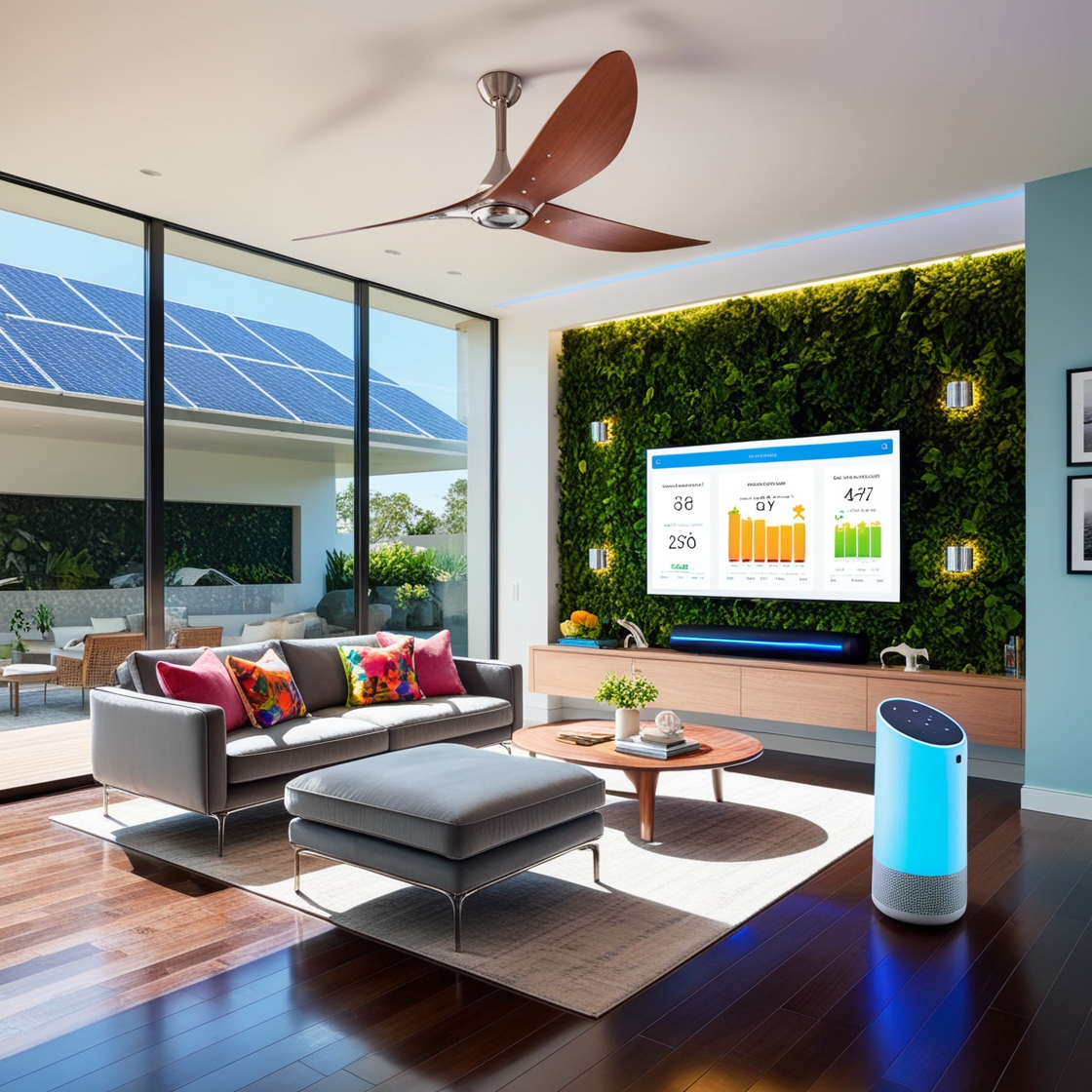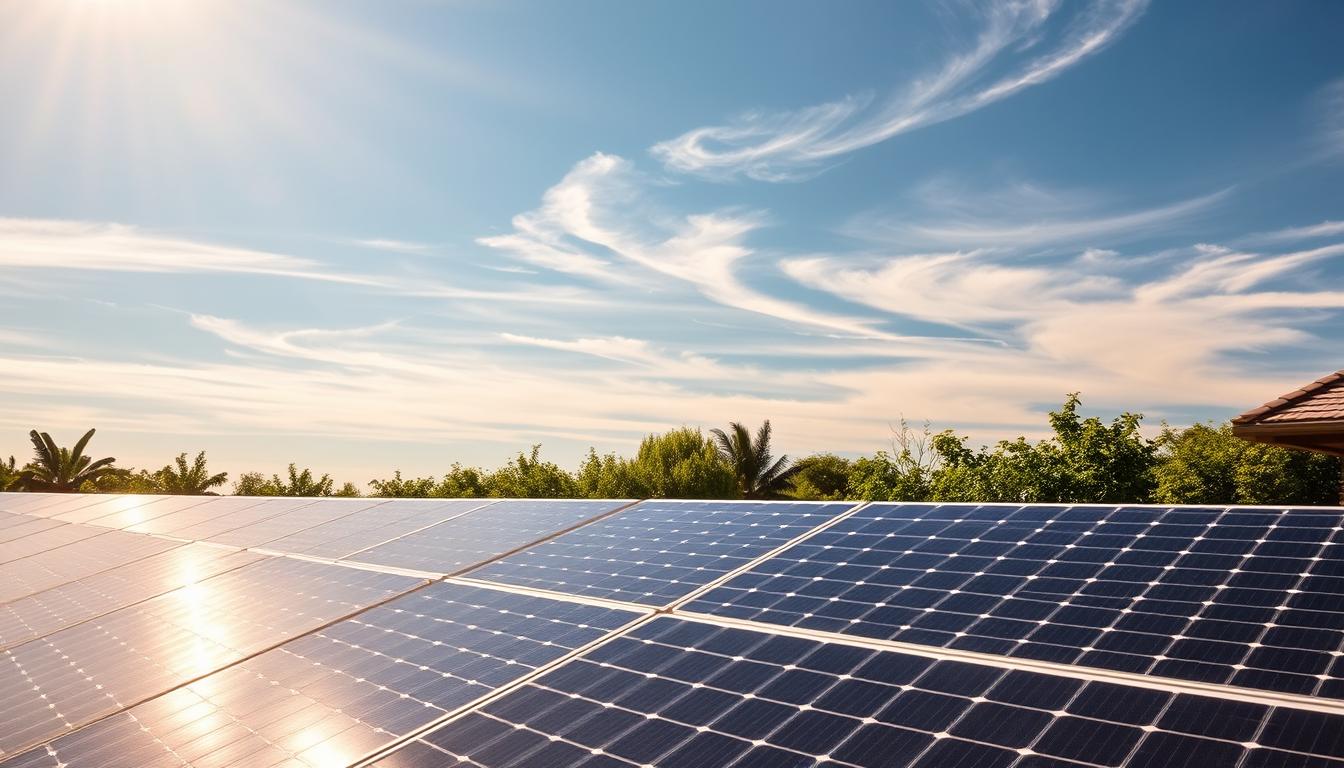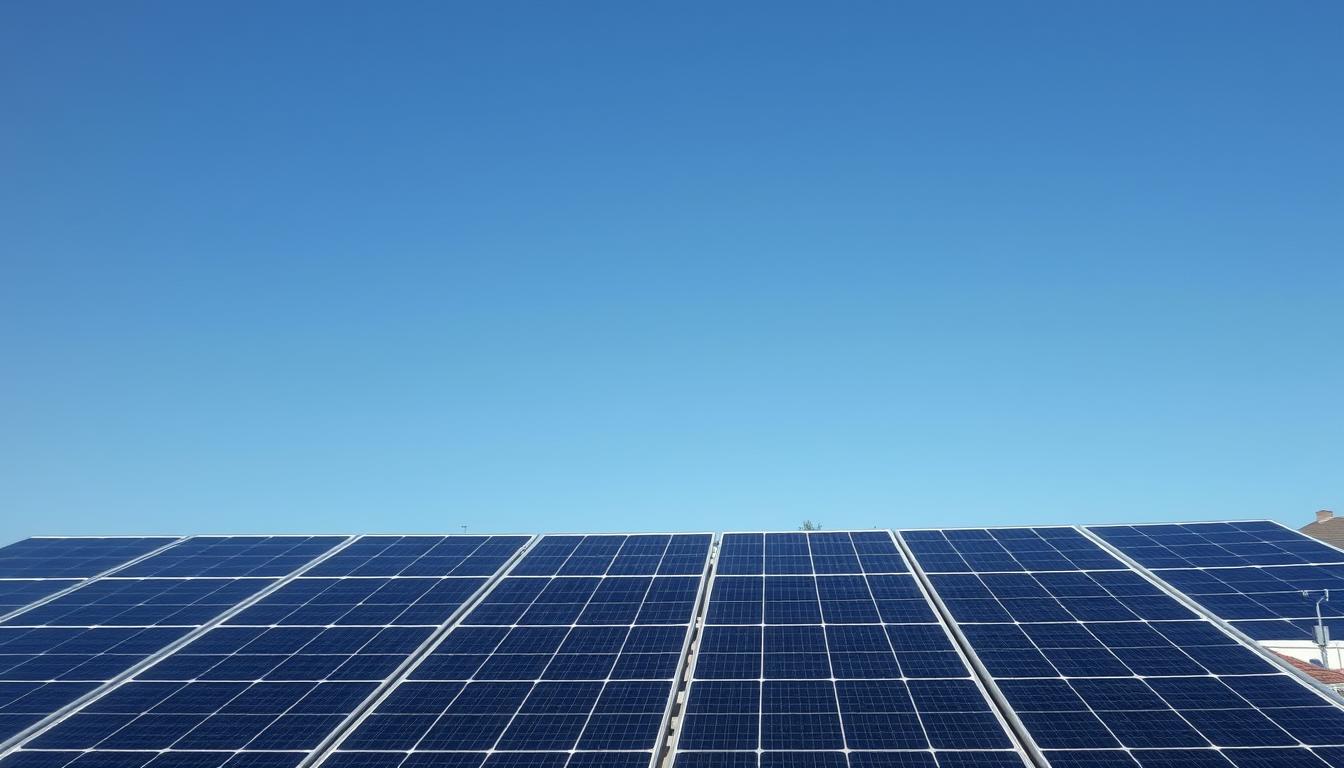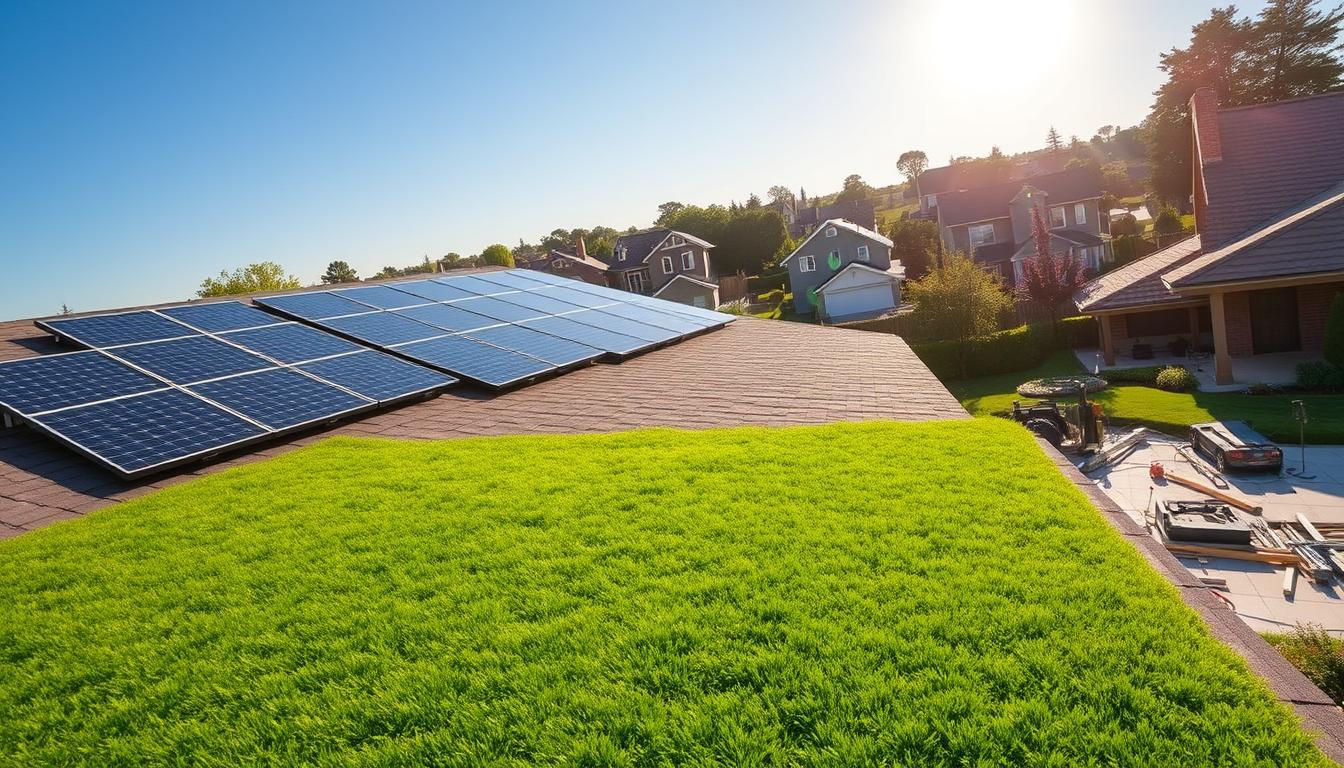Have you ever wondered how integrating solar technology with smart home features can transform your daily life? Imagine a home where energy efficiency, cost savings, and convenience come together in perfect harmony. This isn’t a far-off dream; it’s the reality that many are experiencing today by harnessing solar technology for the ultimate smart home experience.

Understanding Solar Technology for Smart Homes
The sun is an incredible source of energy, and harnessing its power has become more accessible and efficient than ever before. Solar technology involves converting sunlight into electricity using photovoltaic (PV) panels. These panels are typically installed on rooftops or other sunny areas, capturing sunlight and converting it into usable electrical energy. By integrating this technology with a smart home system, users can create an automated, energy-efficient environment that caters to their needs.
The Benefits of Solar Technology
Solar technology offers several benefits, making it an attractive option for homeowners.
| Benefit | Description |
|---|---|
| Energy Efficiency | Solar panels produce clean energy, reducing reliance on fossil fuels and lowering carbon footprints. |
| Cost Savings | Reducing electricity bills by generating your own power and, in some cases, even selling excess energy back to the grid. |
| Reliability | Solar panels can provide power even during outages, ensuring uninterrupted access to electricity. |
| Low Maintenance | Modern solar panels require minimal maintenance and can last for decades. |
| Environmental Impact | Utilizing solar energy reduces greenhouse gas emissions and promotes a sustainable lifestyle. |
Integrating Solar Technology with Smart Home Features
Combining solar technology with smart home features creates an integrated system that maximizes energy efficiency, reduces costs, and provides a more convenient and customizable home automation experience.
Smart Thermostats
Smart thermostats adjust your home’s temperature based on your preferences and habits. By integrating solar technology, homeowners can sync their heating and cooling systems with the solar energy production. Excess solar power generated during peak sunlight hours can be utilized to heat or cool the home, thus conserving energy stored in batteries or drawn from the grid.
Smart Lighting
Smart lighting systems offer unparalleled control over your home’s lighting. Homeowners can use voice commands, smartphone apps, or preset schedules to manage lights. When coupled with solar technology, these systems can prioritize the use of solar-generated electricity to power lights. This integration not only reduces energy consumption but also extends the lifespan of traditional lighting systems.
Energy Storage Solutions
Solar technology can be paired with energy storage solutions like batteries. These batteries store excess solar power generated during the day for use during nighttime or cloudy days. Smart home systems can manage these batteries efficiently, ensuring that stored energy is used optimally.
Home Automation & Security
Integrating solar technology with home automation systems, including security features like alarms and surveillance cameras, ensures that these critical systems remain functional even during power outages. Solar-powered security systems offer reliability and peace of mind, as homeowners can monitor and control their homes remotely, irrespective of grid power availability.
How to Choose the Right Solar Technology for Your Smart Home
Selecting the right solar technology for your smart home involves several considerations.
Assessing Energy Needs
Before installing solar panels, it’s crucial to assess your home’s energy needs. This involves calculating the average daily energy consumption and understanding peak usage times.
Evaluating Sunlight Exposure
The effectiveness of solar panels hinges on sunlight exposure. Assessing the amount of sunlight your property receives will determine the number of panels needed and their optimal placement.
Budget Considerations
Solar technology requires an upfront investment, but it pays off in terms of energy savings and reduced utility bills. Homeowners should compare different financing options, incentives, and rebates available for solar installations.
Compatibility with Smart Home Systems
Ensure that the solar technology you choose is compatible with your existing or planned smart home systems. Compatibility ensures seamless integration and optimal functioning of your smart home ecosystem.
| Component | Function |
|---|---|
| Solar Panels | Capture sunlight and convert it into electrical energy. |
| Inverter | Converts the DC electricity generated by solar panels into AC electricity. |
| Batteries | Store excess solar energy for later use. |
| Smart Home Hub | Central control system for managing smart home features. |
| Monitoring System | Tracks solar energy production and usage. |
Real-Life Applications and Success Stories
Understanding how solar technology and smart home features work together is possible by exploring real-life applications and success stories.
Case Study: The Smith Family
The Smith family decided to invest in solar technology and smart home systems. After assessing their energy needs and sunlight exposure, they installed 20 solar panels on their rooftop. They paired their solar system with a smart home hub, energy-efficient appliances, smart thermostats, and a home battery.
Now, the Smith household enjoys significant savings on their monthly energy bills. Their home automation system optimally uses solar energy for heating, cooling, and lighting. Additionally, they have peace of mind knowing that their energy storage solution provides backup power during outages.
Technology Enthusiast: Alex’s Journey
Alex, a tech enthusiast, always aimed to make his home as energy-efficient as possible. By integrating solar technology with smart home features, he has built a self-sustaining home. His smart lighting system uses solar power during daylight hours, and his smart thermostat ensures that heating and cooling are managed efficiently.
Alex’s home is a testament to how renewable energy and smart technology can create a sustainable living environment. He has managed to reduce his carbon footprint significantly and enjoys a highly optimized home environment.

Future Trends in Solar-Powered Smart Homes
The future looks bright for solar-powered smart homes, with new trends and technological advancements on the horizon.
Increased Efficiency
Advancements in solar panel technology are making them more efficient and affordable. Innovations like bifacial solar panels, which capture sunlight from both sides, promise to increase energy production.
Integration with Electric Vehicles (EVs)
Integrating solar technology with EVs allows homeowners to use solar energy to charge their vehicles, further reducing reliance on fossil fuels. Smart home systems can manage energy distribution between home usage and EV charging.
Grid Independence
The future may see more homes striving for grid independence. Advanced energy storage solutions and more efficient solar panels can enable homes to produce and store enough energy to meet their needs entirely.
AI and Machine Learning
Artificial intelligence (AI) and machine learning are set to revolutionize smart home systems. These technologies can predict energy consumption patterns, optimize energy usage, and even anticipate maintenance needs.
Overcoming Challenges and Misconceptions
While solar-powered smart homes offer numerous benefits, some challenges and misconceptions need addressing.
Initial Investment Costs
One of the significant barriers to adopting solar technology is the initial investment cost. However, many financing options, government incentives, and rebates can make solar installations more affordable.
Maintenance and Durability
Some believe that solar panels require high maintenance. In reality, modern solar panels are highly durable and need minimal maintenance. Occasional cleaning and inspections are typically sufficient to maintain efficiency.
Compatibility Concerns
There are concerns about the compatibility of solar technology with existing home systems. Ensuring compatibility during the planning phase can mitigate these issues. Most modern smart home systems are designed to integrate seamlessly with solar technology.
Weather Dependence
Solar energy production is weather-dependent, leading to misconceptions about its reliability. Energy storage solutions like batteries address this issue by storing excess energy for use when sunlight is not available.

How to Implement Solar Technology in Your Smart Home
Implementing solar technology in your smart home involves several steps, but careful planning and execution can help you harness the full potential of this integration.
Step 1: Conduct a Home Energy Audit
A home energy audit will help you understand your current energy consumption and identify areas for improvement. This audit is essential for designing a solar system that meets your energy needs.
Step 2: Consult with Professionals
Consulting with solar energy professionals and smart home experts will ensure that your solar system is designed and installed correctly. They can provide recommendations on the best technology and integration techniques.
Step 3: Select the Right Components
Choosing high-quality solar panels, inverters, batteries, and smart home systems is crucial. Research and compare options to select the best components for your needs.
Step 4: Installation and Integration
Ensure that your solar panels are installed in optimal locations for maximum sunlight exposure. Integrate your solar technology with your smart home system, including connecting inverters, batteries, and the smart hub.
Step 5: Monitor and Optimize
After installation, monitor your solar energy production and smart home system performance. Use monitoring systems to track energy usage and make adjustments as needed to optimize efficiency.
Conclusion
By harnessing solar technology for the ultimate smart home experience, homeowners can enjoy significant benefits, including energy efficiency, cost savings, and enhanced convenience. While the initial investment and integration process require careful planning, the long-term rewards make it a worthwhile endeavor. With the ongoing advancements in solar and smart home technologies, the future holds even more promise for sustainable and efficient living environments.
The journey towards integrating solar technology with smart home features is filled with opportunities for better energy management, reduced environmental impact, and improved quality of life. Now is the perfect time to explore this exciting technology and transform your home into an efficient, autonomous haven. How will solar technology and smart home features revolutionize your living space?




